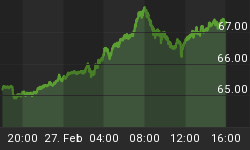This week, with his pronouncement that "credit is the lifeblood of a healthy economy," President Obama reiterated what has been one of his most common themes in diagnosing our economic problem. The president has relied on this bedrock belief to propose policies that place the restoration of credit as the highest priority. However, despite his seemingly earnest intentions, the president and his economic advisors have misdiagnosed the ailment. Savings, not credit, is the lifeblood of a healthy economy. When not used properly credit can be like a cancer that sickens an otherwise healthy economy.
What everyone seems to have forgotten at this point is that credit does not come from thin air. Even in a system in which bank reserves are leveraged many times, someone has to put savings in a bank for the bank to turn around and make a loan. As a result, the bedrock is the savings, which allows for the credit to flow. Credit extended without adequate savings inevitably leads an economy into disaster.
The primary mechanism that has injected credit where it does not belong is the massive credit card industry that has developed in the United States over the last generation. The ease with which these cards may be obtained and the degree to which Americans now rely on them for routine purchases has created a culture of credit that simply has no precedent in a healthy economy. Until this culture has been reformed, America's fight to restore economic vitality will be a lost cause.
However, this week a much discussed opinion piece in the Wall Street Journal by top banking analyst Meredith Whitney, indicated that many Americans besides the president are still looking toward credit as the means of economic salvation. In her piece, Ms. Whitney writes,
"...Undeniably, consumers look at their unused credit balances as a "what if" reserve. "What if" my kid needs braces? "What if" my dog gets sick? "What if" I lose one of my jobs? This unused credit portion has grown to be relied on as a source of liquidity and a liquidity management tool for many U.S. consumers. If credit is taken away from what otherwise is an able borrower, that borrower's financial position weakens considerably. With two-thirds of the U.S. economy dependent upon consumer spending, we should tread carefully and act collectively."
In order to keep the economy functioning, Ms. Whitney asks the credit card providers and the federal government to keep credit lines open, so that millions of Americans can keep on spending. However, while such actions would certainly keep our phony economy propped up a while longer, it would further weaken the very foundation upon which a real economy will eventually have to be rebuilt.
Without a doubt, Americans, and all other people for that matter, benefit from having access to "rainy day money." But Americans should be saving for a rainy day, not adopting the attitude that if it rains I'll whip out my credit card. If Americans need to pay for a suddenly ill dog, to straighten their kid's teeth, or to pull them through a period of unemployment, they should save some of their present earnings.
But saving money requires a reduction in spending, and that is something that modern economists, within and without the Administration, cannot abide. A drop in spending will create a sharper contraction in our economy - which is now comprised of 70% consumer spending. But this is no reason to discourage the process. The option to go into debt in the event of an emergency is no substitute for building personal savings for such events. Not only does such a strategy jeopardize the solvency of individuals or families when they are at their most vulnerable, but it deprives society of badly needed savings.
Currently, with so many financially strapped Americans looking to draw on their credit lines, the fallacy of this 'savings substitute' is easily revealed. With lenders' capital depleted, and falling home prices, and rising unemployment putting borrowers at greater risk of default, credit is naturally harder to come by. Had only a small percentage of borrowers needed to access their credit card "rainy day funds" there would have been no credit crisis. But with a deluge drenching so many at once, there was simply not enough credit umbrellas to go around. Had Americans actually been saving money instead, everyone would have his own umbrella and would not now be looking to borrow someone else's.
Most importantly, as savers bank their earnings into "rainy day funds," in addition to earning interest, those savings are available to businesses to make capital investments, produce goods and services, and provide employment. Without access to those savings, such investments cannot be made, and society is worse off as a result.
Lastly, savings can always be relied upon whereas credit is ephemeral. Remarks this week from the Chinese premier Wen Jiabao should serve notice to all Americans that the day will soon come when the Chinese stop lending us their umbrellas. When that happens, the average American will be soaked to the bone.
For a more in depth analysis of our financial problems and the inherent dangers they pose for the U.S. economy and U.S. dollar, read my just released book "The Little Book of Bull Moves in Bear Markets." Click here to order your copy now.
For a look back at how I predicted our current problems read my 2007 bestseller "Crash Proof: How to Profit from the Coming Economic Collapse." Click here to order a copy today.
More importantly, don't wait for reality to set in. Protect your wealth and preserve your purchasing power before it's too late. Discover the best way to buy gold at www.goldyoucanfold.com. Download Euro Pacific's free Special Report, "Peter Schiff's Five Favorite Investment Choices for the Next Five Years", at http://www.europac.net/reports.asp. Subscribe to our free, on-line investment newsletter, "The Global Investor" at http://www.europac.net/newsletter/newsletter.asp. And now watch the latest episode of Peter's new video blog, The Schiff Report, at http://www.europac.net/videoblog.asp.















